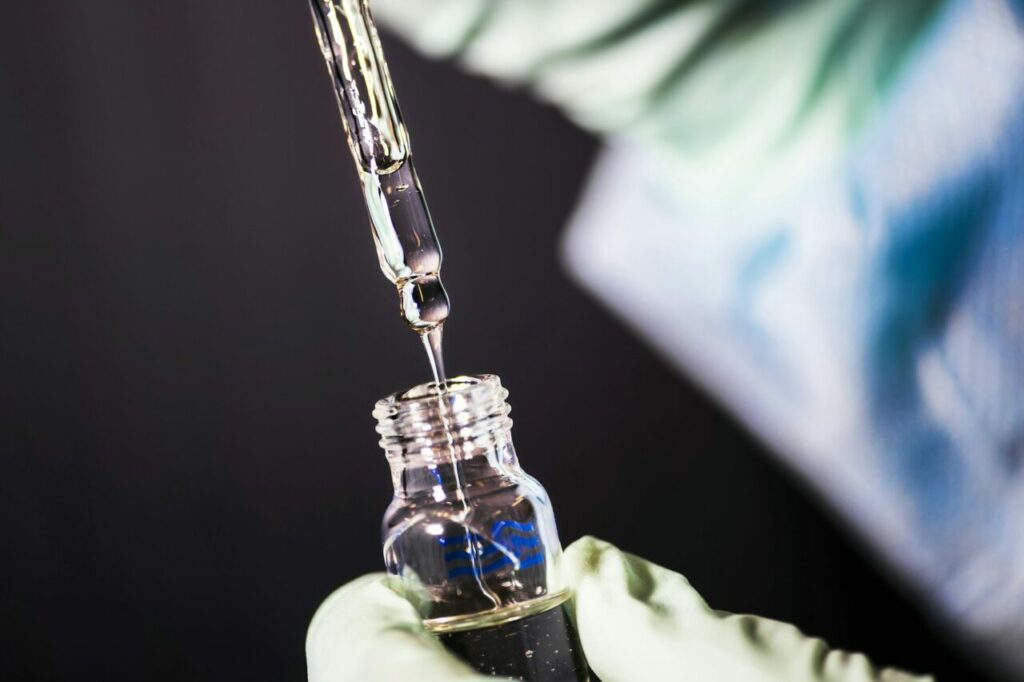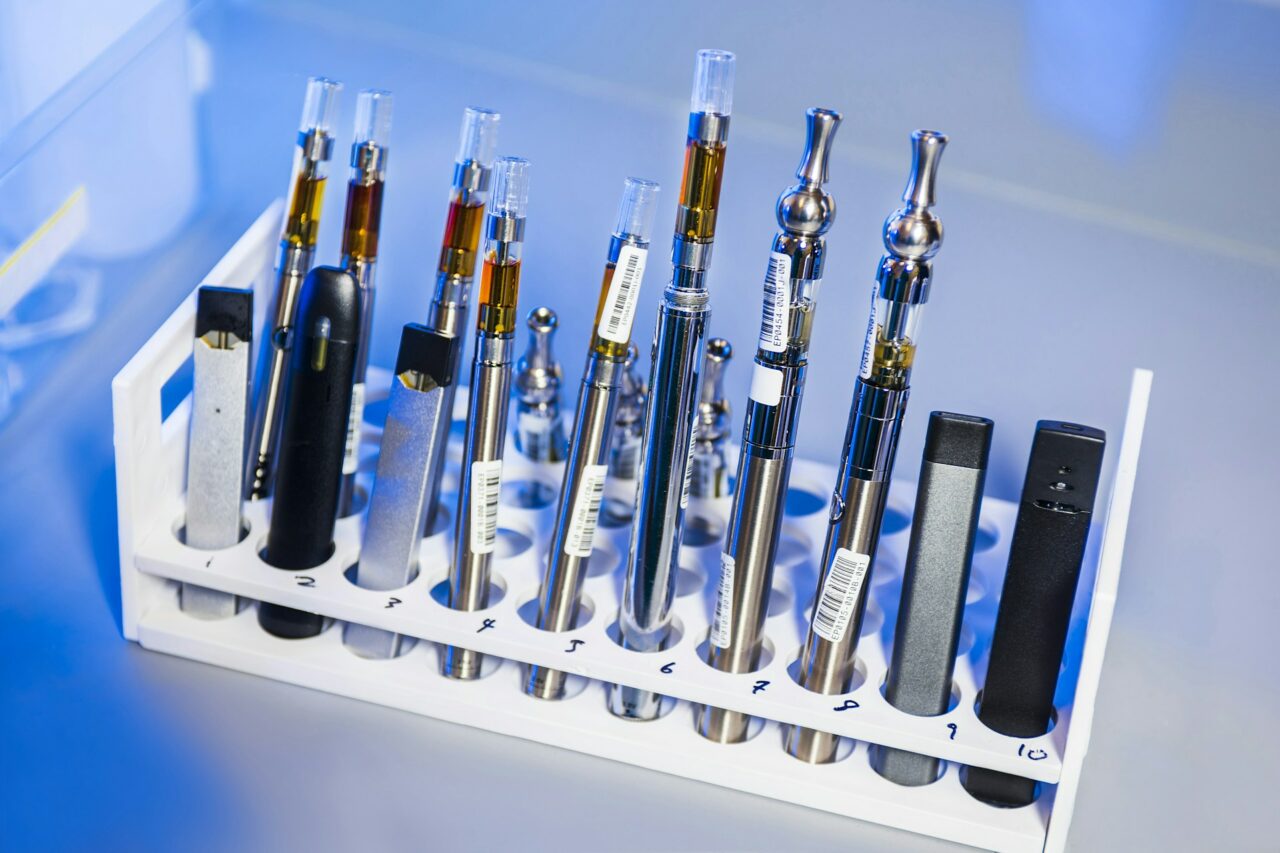The Drug Enforcement Administration (DEA) is increasing production quotas for innovative substances such as the DMT vape pen, marijuana, and other psychedelic substances. With Canada leading the charge, we are on the brink of a fascinating new era of understanding.
The recent announcement of increased production for certain substances offers unprecedented research opportunities.
Key Takeaways:
- The DEA is set to raise production quotas to 20,000 grams of psilocybin and 11,000 grams of dimethyltryptamine by 2024.
- The spirit molecule disrupts repetitive thoughts and enhances brain and cognitive function.
- Suggesting an increase in these substances could advance medical science and pave the way for cost-effective alternative treatments.
DEA’s 2024 Strategy: A Glimpse into the Future of Psychedelics
In a remarkable move towards increasing research capacities, the DEA recently proposed an increase in the production of specific controlled substances for scientific exploration in 2024. This reflects a growing recognition of the need for larger quantities to meet medical and research demands.
Details of the Proposal
The revised proposal significantly increases production quotas, demonstrating a deep commitment to clinical trials. For instance, the target for some substances has nearly doubled, with the production cap set at 20,000 grams for psilocybin and 11,000 grams for DMT vape cartridges.
These changes are a direct response to feedback from registered manufacturers, emphasizing the need for larger quantities to support current and future research. The production goals for related compounds have been maintained at previously high levels to ensure a steady supply for therapeutic investigations.
Potential Benefits for Scientific Research and Therapeutic Uses
The increased availability of these substances could pave the way for new scientific studies, particularly in understanding their therapeutic potential. As more research emerges, scientists could uncover revolutionary treatments for various conditions, including mental health disorders.
This intensified focus could not only expand our knowledge but also align with the growing public interest in alternative treatments. These changes could propel medical science forward and offer more affordable therapeutic options than traditional methods.
wp:list –>- Examining the effects of varying doses and methods of administration.
- Researching the possibility of synergistic treatments using other mental health therapies.
Venturing into Unknown Territories: Ongoing and Prospective Studies on Dimethylamine and Psychedelics in Canada
Canada is increasingly focusing on alternative therapy approaches, with recent advancements suggesting a potential transformation in mental health treatment.
In 2021, there was a significant rise in interest for substances recognized for their psychological benefits. Despite a subsequent market slowdown, clinical trials consistently produce encouraging results.

Current State of Affairs
On December 5, 2022, Health Canada released a Notice to Stakeholders outlining anticipated risk-management procedures for clinical trials involving psychedelic-aided psychotherapy. In Canada, different provinces have distinct strategies for regulating psychedelics and their research:
| Ontario | The first federal grant for psilocybin research in Canada was awarded to the Centre for Addiction and Mental Health (“CAMH”). |
| Alberta | Approval granted for therapeutic use of specific psychedelics including psilocybin, psilocin, ketamine, LSD, MMDA and DMT. |
| University of Guelph | Received authorization from Health Canada to grow psilocybin-containing mushrooms |
| Saskatchewan | The Linden Medical Centre offers assistance for individuals with PTSD to access psychedelics |
| New Brunswick | Home to a series of private clinics offering PTSD treatment with ketamine |
| British Columbia | Personal possession of specific substances has been decriminalized |
| Quebec | Numinus’s Mindspace legally administers psilocybin and MDMA for the treatment of treatment-resistant depression and PTSD. |
Potential Areas of Research
Several promising research areas are emerging, particularly concerning the therapeutic uses of dimethyltryptamine and psilocybin. As the evidence of their effectiveness expands, future research could focus on:
Entrepreneur Tim Leonard describes a deeply moving encounter: “It felt like my soul left my body and entered a divine realm.” He saw “a translucent human skull with a pulsating, colour-radiating brain,” which conveyed a deep appreciation for human existence.
The Rise of Vape Pens: A Guide for Informed Consumers
The growing preference for superior DMT vape pens and cartridges has transformed the way people engage with this substance. These small devices offer a discreet and convenient way to enjoy its benefits. As more people use them, it becomes increasingly important to use them responsibly and stay informed about ongoing research.
- Educate Yourself: Stay updated with credible sources about studies and regulations. Keep track of clinical trials and their outcomes; they can provide valuable insights into safety and effectiveness.
- Know Your Product: Purchase from reputable suppliers that offer transparent labelling and quality guarantees. Understanding the contents of your product can ensure a safer experience.
- Practice Moderation: Start with smaller amounts to assess your response. Conscious consumption can lead to more enjoyable experiences.
- Join the Community: Engage in discussions with other users and medical professionals. Sharing experiences and insights fosters a supportive environment and encourages responsible use.
Looking Ahead: How Canada’s Online Dispensary is Preparing for the Psychedelic Trend – Where to Purchase Vape Pens
As we continue to learn more about DMT through research, we are developing standard treatment protocols for various mental health disorders based on successful trials.
We are also assessing the safety and efficacy of home-based treatment methods to improve accessibility, and examining the impact of different doses and administration techniques.
In addition, we are exploring the potential of integrating these treatments with other mental health therapies.
Understanding these substances can be complex, but Get Magic Mushrooms Canada offers well-informed choices for each journey. We’re a trusted online dispensary providing high-quality psilocybin products, making the exploration of the vibrant world of psychedelics easier than ever before.
The DEA’s recent activity has sparked interest in psychedelic research, leading consumers to expect an array of thrilling opportunities in the near future.
Frequently Asked Questions
Can individuals obtain the substances that the DEA has requested?
No, these substances are currently under scientific investigation for their potential benefits. To acquire a DMT vape cart or any of the substances mentioned, you can either visit a clinic that includes them in their treatments or purchase them from an online dispensary.
What distinguishes dimethyltryptamine from other psychedelic substances?
Dimethyltryptamine stands out from other psychedelics due to its powerful effects and short duration. Unlike LSD, which can alter brain activity for several hours, dimethyltryptamine induces a brief yet deeply immersive alteration in consciousness, marked by vivid visual patterns and various other sensations.
Which conditions are currently showing improvement with the use of dimethyltryptamine?
Several studies suggest that this compound can have immediate antidepressant effects in patients the day following treatment. Additional research has explored its impact on the mental health outcomes among healthy volunteers, with a primary focus on reducing symptoms of depression and anxiety.





